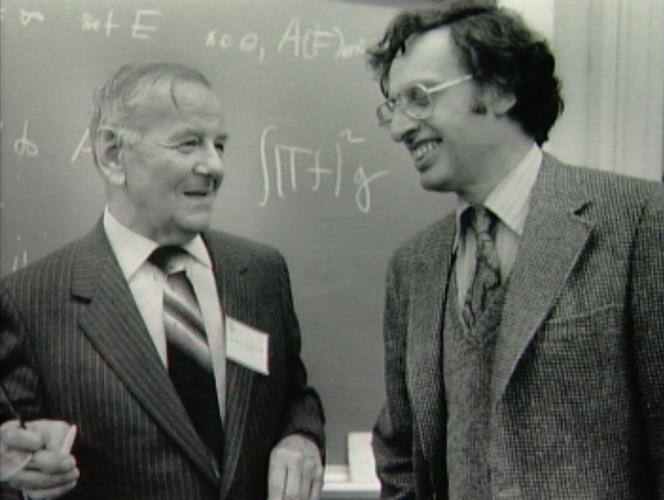Elias M. Stein’s intellectual gifts were nearly denied the opportunity to flourish: a refugee from Nazi-occupied Belgium, Stein would go on to become one of the world’s foremost experts in harmonic analysis, a mathematical procedure for describing and analyzing recurring phenomena such as waves, vibrations, and currents. After graduating from Stuyvesant High School in New York, Stein studied mathematics at the University of Chicago, where he earned his Ph.D. in 1955. In 1963, Stein became a professor at Princeton University, where he has remained ever since. Through his unique ability to understand the interplay between complex mathematical concepts, such as Fourier analysis and partial differential equations, Stein succeeding in unifying the various branches of mathematical analysis. This achievement helped facilitate solutions to problems related to signals processing, quantum mechanics, and neuroscience. His famous texts on the subject — among the most influential works in modern mathematics — have empowered a generation of students to continue his legacy of discovery.
By Sara Grossmanrn



